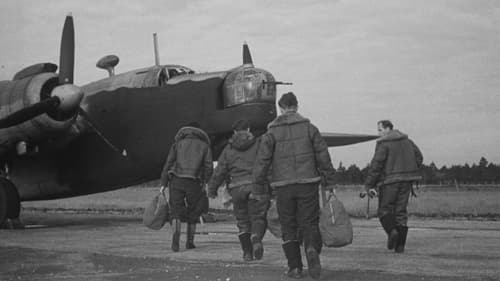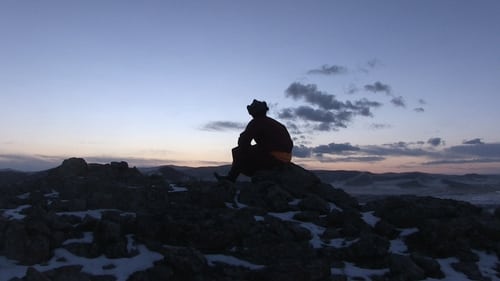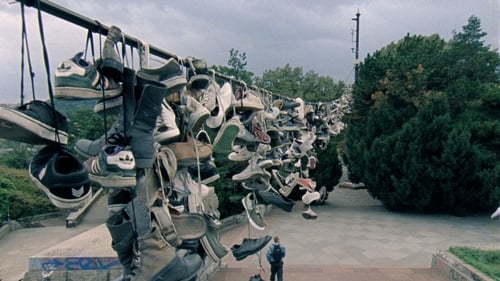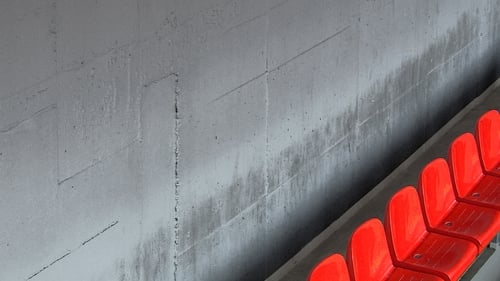
Editor
A children's film about the largest mass suicide of the 20th century reconstructs the 1978 event. The Reverend Jim Jones forced nearly a thousand followers of his People's Temple sect to drink poison in the settlement of Jonestown, Guyana, South America. A third of them were children. Jan Bušta gives sadists, voyeurs, and necrophiliacs one minute to leave the cinema. His self-reflective documentary, which is the result of ten years of time-lapse filming, does not depict dramatic scenes. To the sound of an audio recording from that fateful day, we see a collage of child ghosts preaching about escaping the corruption of the world.

Editor
The film takes place on the eighth day of Russia's war campaign in Ukraine. Eight Ukrainians residing in the Czech Republic – a businesswoman, cleaning ladies, construction workers, and bus drivers – make their own diary-like observations of the events in their homeland. They continue to bury themselves in their work, unable to afford to withdraw themselves from their current lives. In their minds, however, they've transported themselves hundreds of kilometers away, helping their fellow countrymen and women by any means necessary. They provide accommodation for refugees, scout for bulletproof vests, and call their loved ones who’ve taken shelter from falling bombs. They have a hectic and emotionally overwhelming 24 hours ahead of them. But it’s not the first 24 hours and it won’t be the last.

Editor
František Fajtl and Filip Jánský were among the few Czechoslovak airmen who actively fought on all major European battlefronts during World War II and lived to tell the tale. This unique documentary edit, which combines authentic eyewitness accounts of historic events with little-known archival footage, examines various fates and places as well as the journeys associated with them. The resulting amalgam of images, speeches, and music/sound files is far from your typical historical illustration. A suggestive portrayal of life under bleak conditions, far away from home and on the cusp of death, unfolds before our very eyes.

Editor
Documentary filmmaker Jan Sikl came across several hours of footage showing the Warsaw Pact invasion of Czechoslovakia in private film archives. 53 years later, historical memory awakens from a long slumber with this reconstruction of the occupation, a cinematic adventure of a truly archeological nature.

Editor
Currently Mongolia’s capital has 1.5 million inhabitants - half the population of the country. 50-year Tumurbaatar is only one of many coming to the city to fulfil their dreams of a better life.

Editor

Editor

Editor
A carefully composed observation of two newsrooms which, in March 2017, were avidly chasing after information about the Czech president’s decision whether or not to run for re-election. Two teams of reporters, one extraordinary event, and two takes on one "objective" piece of news.

Editor
ANNA ALEXANDROVNA BARKOVA (1901-1976) Journalist and poet, meeting suspicious characters. Involved in immoral love affairs. Work in the Kremlin, fired. 1934 - Arrested, 5 years of penal servitude in Karaganda. Lived in Ukraine during the WWII. 1946 - Arrested, 5 years of penal servitude in the Komi Republic. 1956 - Rehabilitated, disability pension. 1957 - Arrested, 10 years of penal servitude. The film 8 Heads of Madness is about the eternal struggle between the artist and external circumstances, the artist and her demons and longings. 8 Heads of Madness is a drama woven from fragments of an appalling era. An unhappy cross-section of the 20th century in an unhappy country, as seen through the sensitive, perceptive vision of a poet.

Editor
Gottland provides an unconventional look at Czechoslovak 20th century history. Inspired by the bestselling book “Gottland” from the Polish journalist Mariusz Szczygiel, this feature-length film is comprised of short stories portraying peculiar fates. Young documentary film makers from renowned Prague Film School FAMU, inspired by the book, take a closer look at the history of post-war Czechoslovakia and Czech Republic, in order to discover new heroes and remind us of the ones that were forgotten or erased from the history.

Editor

Editor
Pavel Abrahám’s football documentary offers 22 different viewpoints of who is watching. At a match between Sparta and Slavia, the filmmakers used 22 cameras to film the spontaneous reactions of various visitors, fans, tourists, VIPs, intellectuals, and security guards over the course of the entire game. This experiment with the Czech Republic’s national sport shows football as a game around which the viewers create a whole range of other, highly diverse games.

Editor

Screenplay

Director

Editor
First documentary about the Czech hip hop scene shows how close the Czech rap can come to humour and irony. Three protagonists of the film, James Cole, Hugo Toxxx and Orion appear in situations where they are confronted with a professor of linguistics, children of a Romany quarter, a strict birth registry clerk, classical music trio, a statute of national revival hero Josef Jungmann, and the chanson singer Hana Hegerova, with whom they have a chance to sing the national anthem: "mimino mi mele nohu máma mele maso a máma mele sele kde domov můj?"

Editor
A neon heart installed above Prague Castle illuminated the city for the last three months of Václav Havel’s presidency in an artist’s tribute to his extraordinary service. His last major undertaking was hosting the NATO summit in 2002 and Němec was granted extraordinary access to film it. Set to make a “special poetic film”, it took Němec years to process what he had witnessed – George W. Bush creating an alliance to invade Iraq. It may then be the director’s revenge to point his camera lens democratically at everyone involved with the summit, giving the same screen time to kitchen and waiting staff, musicians, security detail and NATO protesters, as to the heads of states and attending dignitaries. Havel however, became as much of a subject as the president on screen, and the film’s narrator, providing commentary in his own voice from the distance of a few years after he left the office.










